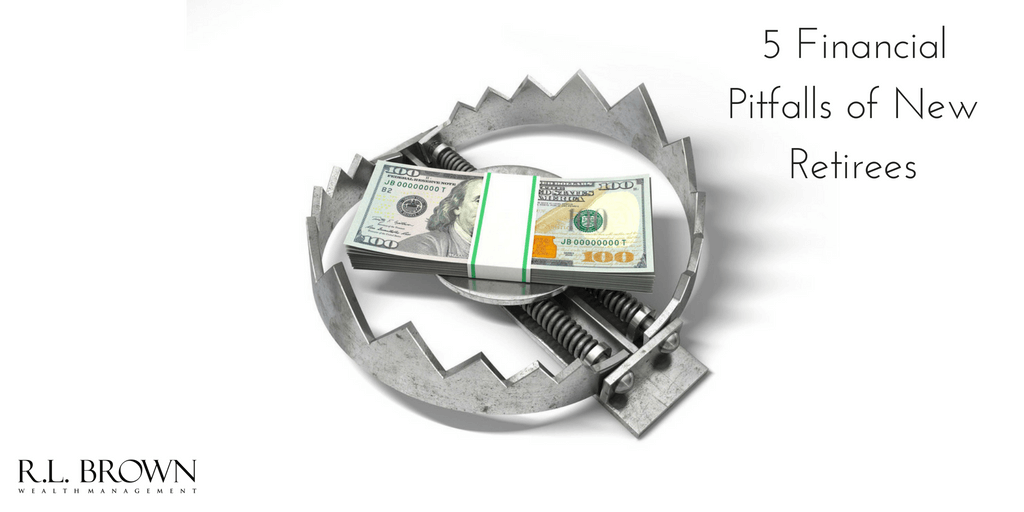Most of us have certain visions of our retirement: spending quality time with family and friends, having the freedom to engage in hobbies and travel. But once the reality of retirement settles in, some may have difficulties adjusting to their new lifestyle.
About two-thirds of retired Baby Boomers noted they experienced challenges adapting to the major change retirement brought to their lives, according to a recent survey. The hardest aspects include finding fulfillment in daily tasks and activities, adjusting to a new schedule, and missing regular social interaction with co-workers.
Following are some tips for how to ease into retirement in a graceful and purposeful fashion:
1. Do your financial homework
Even though money isn’t everything, it definitely does matter in retirement. Don’t delay making sure your estate plans, living space and emergency strategies are in order. It’s a good idea to meet with a financial professional after you make the transition out of the workplace to ensure you have everything in check.
2. Consider getting a part-time job, working from home, or starting your own small business
This is a good option for people that fear they may not have enough savings and/or Social Security benefits to retire completely. It can also be an opportunity to stay socially active as you’ll form relationships with colleagues and/or clients, as well as make new connections in the business world that could be beneficial down the road. Think about your interests. Is there an area you always thought of exploring career-wise but never had the opportunity? Now is the time to pursue those dreams.
3. Volunteer
Perhaps you don’t need any extra income, but you miss being engaged and challenged the way you were in the workforce. Volunteering is a win-win opportunity for you to dedicate time to helping others, while also gaining something from the experience. Consider contacting an established organization you already support about their needs, or perhaps you may want to help a fledgling non-profit gain some momentum. The possibilities are wide with volunteering–organizations need people like you to assist with various aspects of their operation for which you may already have skills or a passion to pursue.
Don’t know where to start? Ask yourself the following questions: “What is my temperament? What are my skills? What are my values? What are my interests?” After you figure those things out, utilize the internet to search for opportunities that could be good matches.
4. Take classes
Did you ever wish you could have enrolled in certain courses in college but didn’t have the time? Well, retirement could be a golden opportunity to further your education. Just because you’re no longer working doesn’t mean you can’t benefit from filling your mind with more knowledge. The more you read and learn, the better writer, conversationalist, and overall well-rounded person you can become.
Also, in this day and age, many classes are offered online, so you have the choice of studying from the comfort of your own home, or in a traditional classroom setting. Remember: you don’t have to take traditional college courses. There are a plethora of other classes available in various cities centered on cooking, art, technology and other interests. Do a little research online or call your city’s visitor’s bureau for more information and sign on up!
5. Stay Healthy
While some factors that cause poor health are out of your control, there are many things you can do to improve your well being. Eating a healthy, balanced diet and getting some form of exercise each day has proven time and again to aid people’s overall physical, as well as mental quality of life. Do as much as you can, in spite of any medical issues you may be dealing with. Also, remember the healthier you are, the less you’ll be spending on doctor’s bills, hospital visits and medications.
6. Don’t be antisocial
Even if you’re naturally a homebody, make a point to get out and be with others after you retire. Research has proven that people who social engage with others are happier and healthier than those who isolate themselves. If you feel yourself battling feelings of depression, visiting a friend may just be what the doctor ordered. Being honest about your fears or anxieties about your present or future situation with others can be the best medicine to help you work through them.
7. Be prepared for a possible shock to your identity, but don’t let it get you down
There can be plenty of highs and lows after you leave your former working self behind and take on a new identity. This is especially true for people that have worked for the same company and in the same profession for many years. But don’t feel like you have to take on the title of “retired” as your new job description. Instead, come up with a new title after exploring one or more of my first four tips. Perhaps you’ll become a part-time antique dealer, a child care volunteer specialist, a psychology student, an author or a motivational speaker. The possibilities really are endless.
8. Realize the adjustment to retirement takes time
Any process that alters your roles, routines, relationships and habits will need a transitional period to allow the dust to settle.
“You are leaving a life you know and moving into a new world, Nancy Schlossberg, 85, author of “Revitalizing Retirement and Retire Smart, Retire Happy” and retired professor of counseling at the University of Maryland, told CNBC. “It will take time to get a new life. If you don’t understand that you can get very frustrated.”
The immediate aftermath of leaving your job may cause a roller coaster of emotions, but it won’t stay that way.
“Be patient with yourself and realize that the way you feel on the “R” day, your retirement day, is not going to be the way you feel a year from now, two years from now or five years from now,” Schlossberg said.






